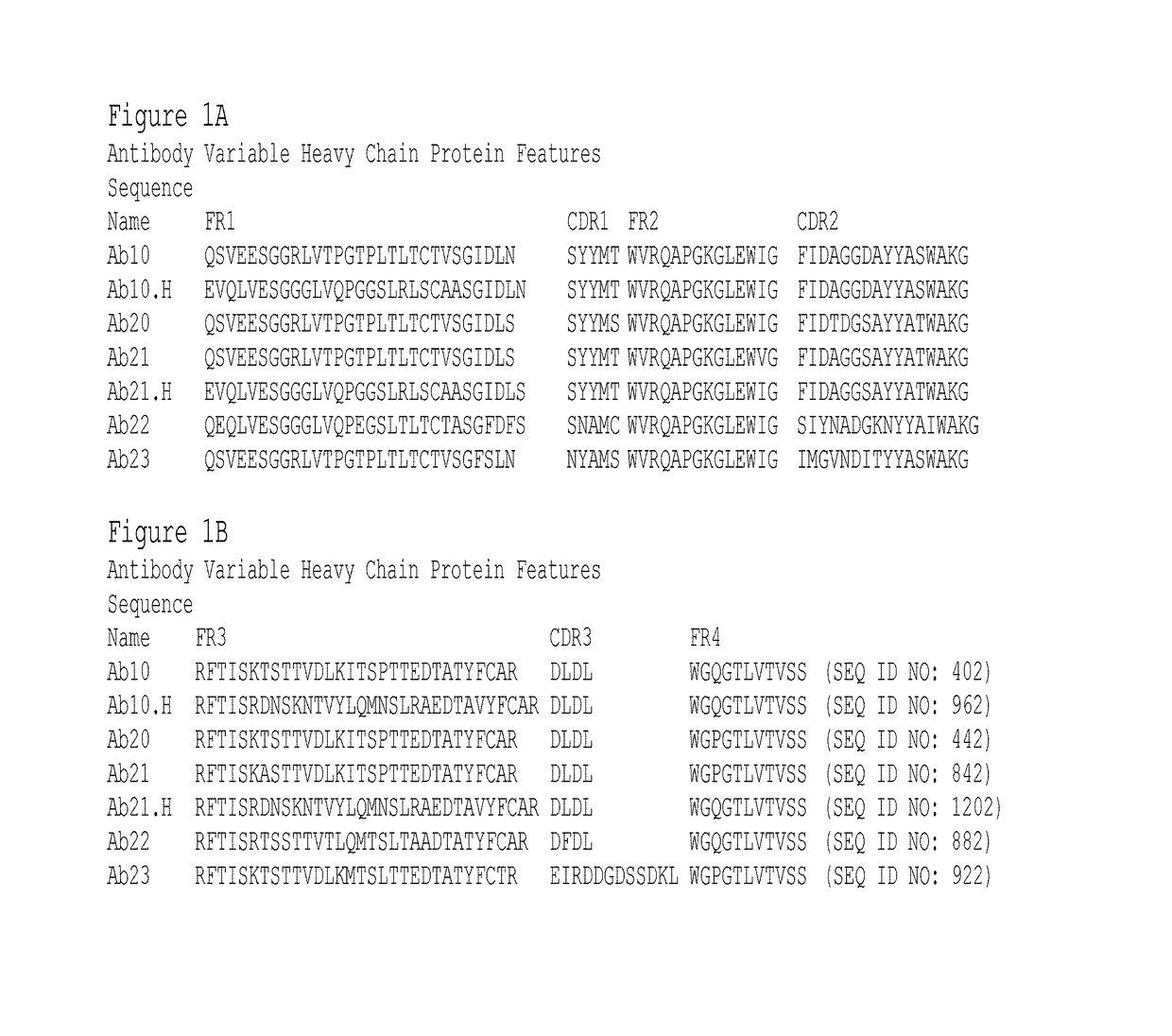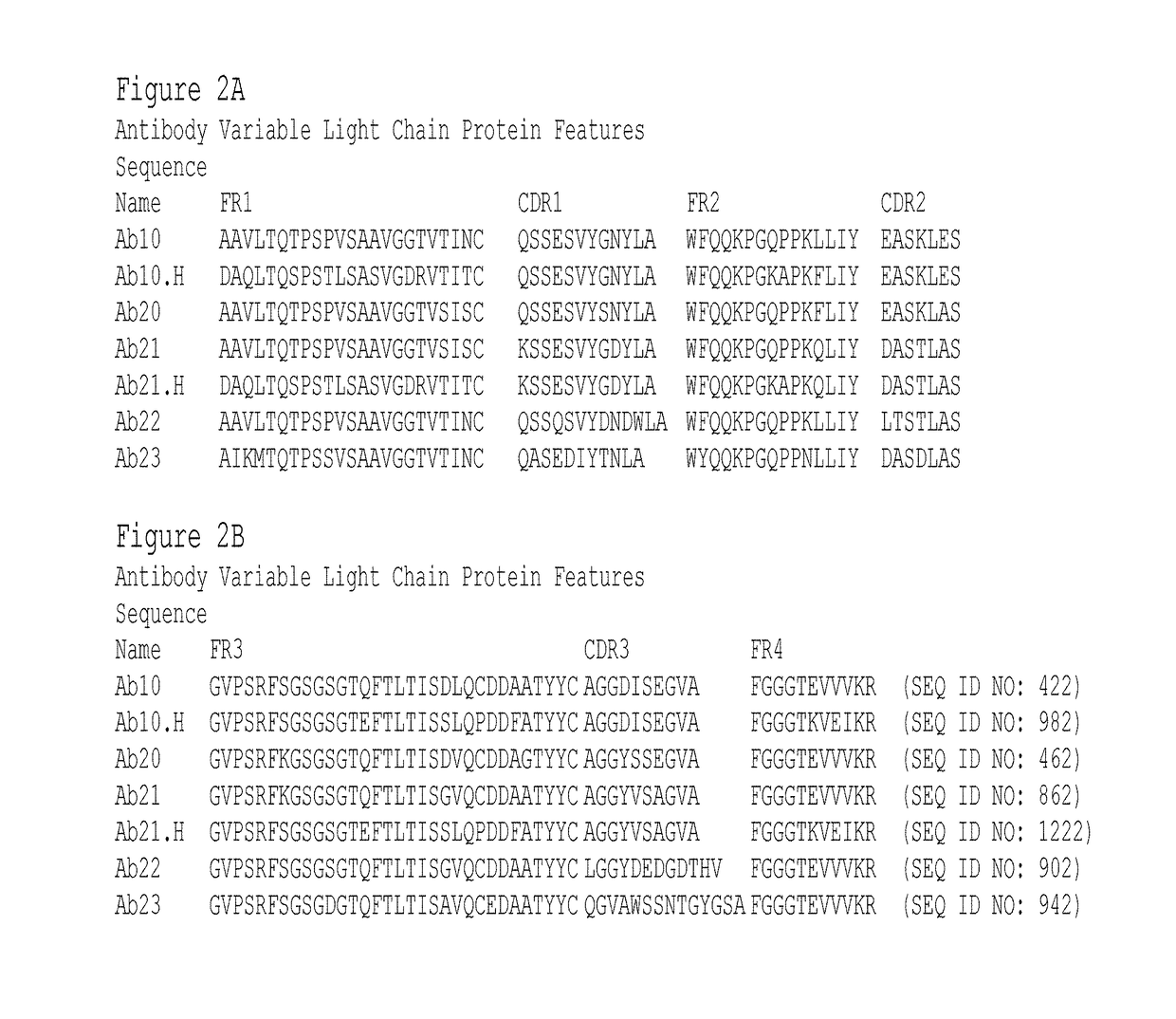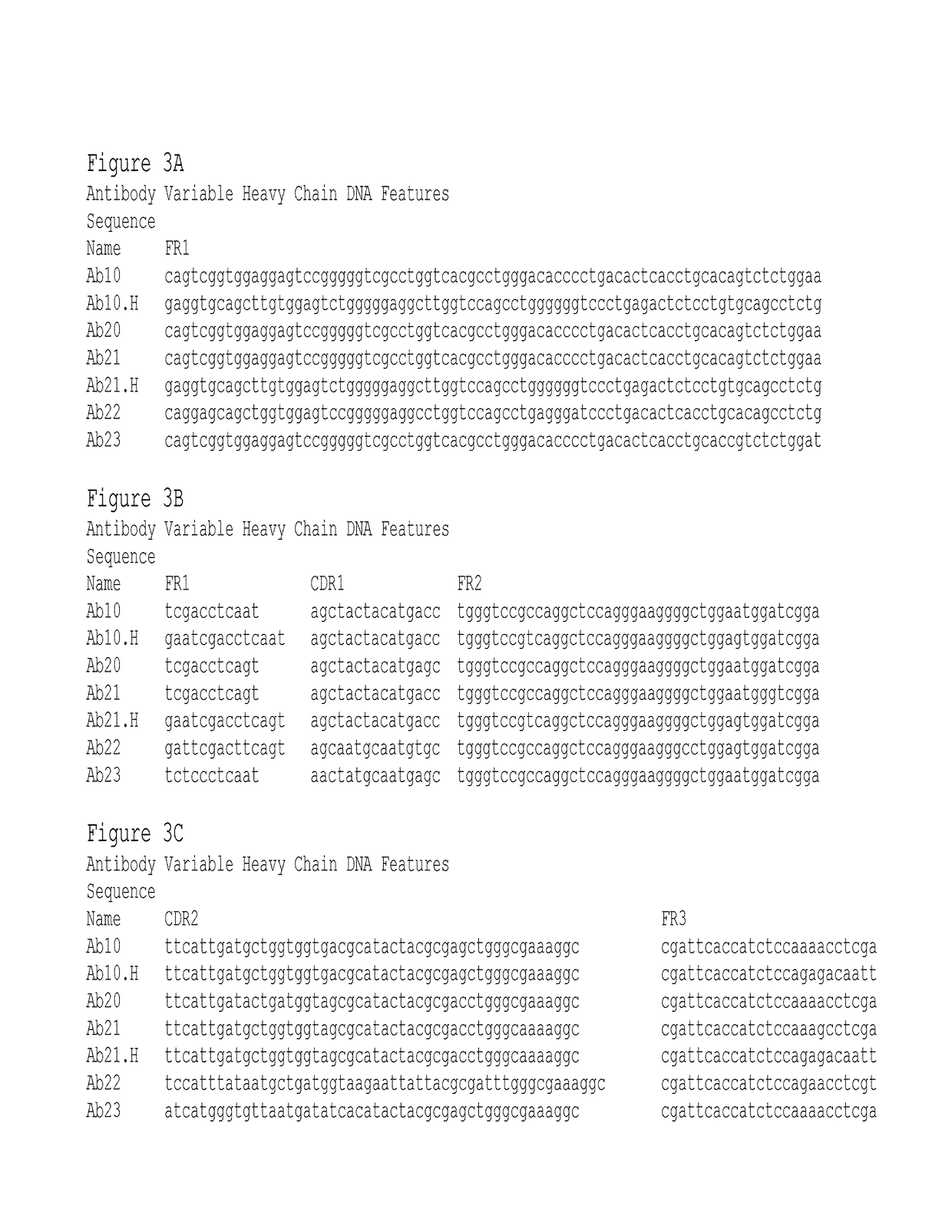Anti-PACAP antibodies and uses thereof
a technology of anti-pacap and anti-pacap gel, which is applied in the field of anti-pacap, can solve the problems of reducing the effect of vasoconstrictive effect on coronary arteries, and affecting the effect of anti-pacap antibody activity,
- Summary
- Abstract
- Description
- Claims
- Application Information
AI Technical Summary
Benefits of technology
Problems solved by technology
Method used
Image
Examples
example 1
Preparation of Antibodies that Selectively Bind PACAP
[0640]By using an antibody selection protocol substantially as described herein, a panel of antibodies specific to PACAP38 and PACAP27, and a panel of antibodies specific to PACAP38 only, were produced.
Immunization Strategy
[0641]Rabbits were immunized with PACAP38 (American Peptide, Vista, Calif.) (SEQ ID NO: 1241). Peptides were prepared for immunization as follows. A 0.15 ml volume of 10 mg / ml keyhole limpet hemocyanin (“KLH”) dissolved in Dulbecco's phosphate buffered saline (“DPBS”) supplemented to 1M NaCl was combined with 1.0 ml of 1 mg / ml peptide (dissolved in deionized water). Then 1.0 ml of 40 mM carbodiimide was added prior to a 12-hour incubation at room temperature with gentle mixing. Excess carbodiimide and unconjugated peptide were removed by dialysis to DPBS prior to sterile filtration. Next unconjugated peptide equal to the initial mass of KLH was added prior to preparation for injection into rabbits. Alternatively...
example 2
Binding Affinities of Anti-PACAP Antibodies
[0670]Binding affinities of monoclonal antibodies for human PACAP were estimated using SPR on the PROTEON™ XPR36 (Bio-Rad, Hercules, Calif.). Antibody was immobilized to the surface of general amine coupling (“GLC” or “GLM”) Chips (Bio-Rad, Hercules, Calif.). A dilution series of human PACAP38 (SEQ ID NO: 1241) prepared in 1×PBST Buffer (4.3 mM Na Phosphate, 1.4 mM K Phosphate, 135 mM NaCl, 2.7 mM KCl 0.05% Polysorbate-20) purchased from Teknova (Cat# P1192, Teknova, Hollister, Calif.) and supplemented with 0.25 M arginine (from J.T. BAKER®), 0.2 mg / ml BSA (Jackson Immuno Research Labs, West Grove, Pa.), and 0.005% sodium azide (VWR International, Radnor, Pa.) with the pH adjusted to 7 was used to query the antibodies. Antigen (ranging from 1.23 nM to 100 nM) was typically run sequentially with association times of 2-4 minutes and dissociation times of 3-120 minutes grouped with the PROTEON™ Manager Software (v3.1.0.6 (Bio-Rad, Hercules, Ca...
example 3
Inhibition of PACAP38-Induced Signaling Via VPAC1-R
[0679]To identify antibodies that neutralize PACAP38-induced signaling via human VPAC1-R, CHO-K1 cells expressing human VPAC1-R were used in a cAMP HTRF cell-based assay. Antibody dilutions were incubated with PACAP38 at 4× the final concentration (5 nM) for 1 hour. While the antibody / antigen complexes were incubated for 1 hour, VPAC1-R expressing CHO-K1 cells (generated at Alder Biopharmaceuticals, by stable transfection of CHO-K1 cells (ATCC, catalog # CCL-61) with human VPAC1-R cDNA; selected clone 1 was used for in vitro cell based assays) were detached with 0.25% trypsin for 4 minutes. The cells were washed and re-suspended at 1×106 cells per ml culture media. 20 μl of Ab / antigen mixture was mixed with 20 μl of cells in HTRF plates and incubated with shaking for 30 minutes. 20 μl of Eu3+ cryptate labeled anti-cAMP mAb (1:20 diluted) and 20 μl of (1:20 diluted) d2-labeled cAMP in lysis buffer were added to each well and incubate...
PUM
| Property | Measurement | Unit |
|---|---|---|
| binding affinity | aaaaa | aaaaa |
| surface plasmon resonance | aaaaa | aaaaa |
| affinity | aaaaa | aaaaa |
Abstract
Description
Claims
Application Information
 Login to View More
Login to View More - R&D
- Intellectual Property
- Life Sciences
- Materials
- Tech Scout
- Unparalleled Data Quality
- Higher Quality Content
- 60% Fewer Hallucinations
Browse by: Latest US Patents, China's latest patents, Technical Efficacy Thesaurus, Application Domain, Technology Topic, Popular Technical Reports.
© 2025 PatSnap. All rights reserved.Legal|Privacy policy|Modern Slavery Act Transparency Statement|Sitemap|About US| Contact US: help@patsnap.com



